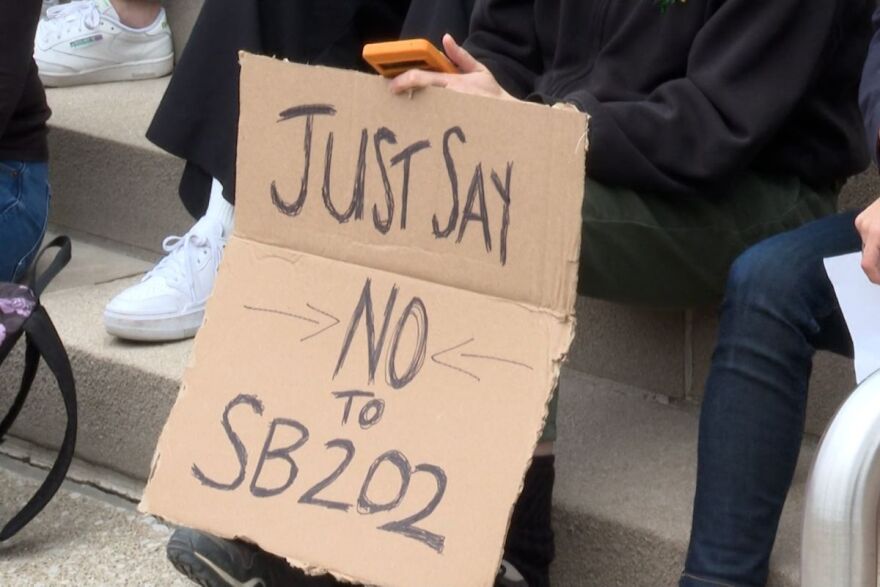Indiana Attorney General Todd Rokita wants to dismiss a lawsuit challenging Indiana’s divisive new tenure law. His office said the case has no basis since the law has not yet been enforced.
Senate Enrolled Act 202 riled professors and free speech groups over its “intellectual diversity” mandate, tying a faculty member’s job security to the ideas they do (or don’t) share in the classroom.
The law requires tenured professors to go through a review every five years, with the possibility their tenure protections will be revoked if they’re accused of not including multiple viewpoints in the classroom.
The American Civil Liberties Union of Indiana filed the suit against the Purdue University board of trustees in May to block the law from taking effect. It later amended the suit to include the trustees of Indiana University as well.
The ACLU maintains that the law violates the First and Fourteenth Amendment rights of the plaintiffs, four tenured faculty from Purdue Fort Wayne, IU Indianapolis and IU Bloomington.
"The manufactured fears put forth in yet another illegit lawsuit by the ACLU don't lack imagination, but the professors do lack standing to even bring this action," Rokita wrote in an email. "Our office will continue to defend in court this new law, which enables students to engage in free inquiry and ensures state universities foster diversity of thought."
In their response to Rokita’s office, ACLU lawyers countered that the act is already injuring professors “when they resort to self-censorship out of an ‘actual and well-founded fear’ that the law will be used against them.”
The law has been a political flashpoint, and the Attorney General’s office is accustomed to weighing in on contentious partisan issues, especially in education.
SEA 202’s supporters, including statehouse Republicans, hope the law will make conservative students feel more welcome on Indiana campuses. Democratic lawmakers strongly opposed the bill.
State universities were divided. Ball State and Ivy Tech asked for changes to sections of the law not concerned with tenure, while Indiana University came out unequivocally against it. Purdue administrators maintained that the law would change little, a position not shared by Purdue’s faculty senate.

